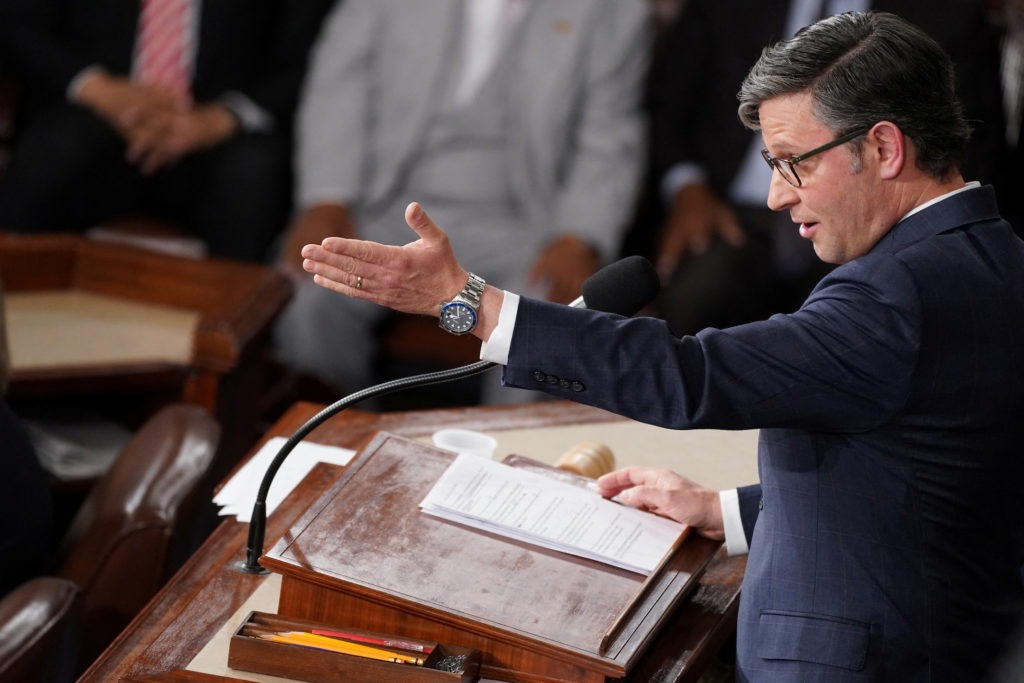House Speaker Mike Johnson recently faced a crucial decision that could shape history and determine the fate of his own political career.
Wrestling with the choice to approve $95 billion in war-time aid for Ukraine, Israel, and U.S. allies, Johnson found himself at odds with many members of his own Republican majority. Some even threatened to remove him from office if he proceeded with the aid package. As a conservative Christian, Johnson sought guidance through prayer and reflection.
Despite facing opposition within his party, he finally decided to move forward with the aid package, prioritizing what he believed to be the right course of action for the country and its allies. This decision marked a remarkable moment for Johnson’s leadership and could define his legacy as House Speaker.

Johnson’s leadership style has been under scrutiny since he assumed the role, with questions about whether he would assert the power of his office or cater to the demands of the Republican majority, many of whom are aligned with former President Trump.
His willingness to reach across party lines and work with Democrats to advance the aid package reflects a departure from traditional party politics in the deeply polarized House.
Despite facing criticism from some within his party, Johnson remained resolute in his decision, emphasizing the importance of prioritizing the nation’s interests over personal political considerations. His actions drew praise from colleagues who saw his stance as a display of courage and conviction in the face of adversity.

While Johnson’s decision finally garnered support from both Democrats and Republicans, some expressed disappointment over what they perceived as delayed action on his part.
Nevertheless, Johnson’s willingness to prioritize the aid package over his own political security highlights the challenges and problems of leadership in a deeply divided political landscape.


